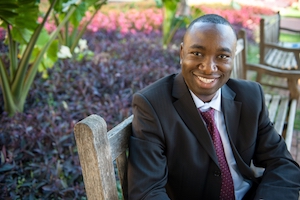During the Fall 2020 semester, EEM Associate Professor Ekundayo worked with other members of his research teams to be awarded two major research grants. One of these awards was a $150,000 planning grant from the National Science Foundation to improve low-income household energy access in the District of Columbia. Prof. Shittu worked with an interdisciplinary team of GW faculty to land the grant. His colleagues included Dr. Robert Orttung of the Elliott School of International Affairs, along with Dr. Payman Dehghanian pf the Electrical and Computer Engineering Department, Prof. Donna Attanasio of the GW Law School, Dr. Wendy Ellis of the Milken School of Public Health), Dr. John Forrer of the GW School of Business), and Meghan Chapple, Director of the GW Office of Sustainability. The GW research team will bring technical, financial, public health, community engagement, public policy, and legal knowledge and resources to the project.
In addition, Dr. Shittu partnered with Dr. Tiffany-Rose Sikorski of the GW School of Education and Human Development and Dr. Erica Wortham of the GW Innovation Center to gain a three-year, $300,000 National Science Foundation grant for the project entitled “Service Learning Projects to Improve Engineering Students’ Civic Engagement and Capacity for Innovation.” Dr. Shittu is the lead Principal Investigator of the project, which will seek to develop students’ capacity for innovation while they use their engineering skills and knowledge to decrease suffering, marginalization, or exclusion of particular groups. Annamaria Konya Tannon, Director of the GW Innovation Center, will oversee implementation of the project in her role as SEAS chief evangelist for innovation and entrepreneurship.
Many engineering programs emphasize the economic opportunities that engineering degrees will open to graduates, such as working for the private sector. However, engineering students are increasingly interested in ways to use their engineering education to pursue careers in which they can see the human impact of their work. The premise of the NSP-funded project is that opportunities for civic engagement can improve student engagement in engineering education through human-centered design and problem solving with empathy. By helping students develop these skills, students will be better positioned to use their engineering knowledge in the future to benefit society.


